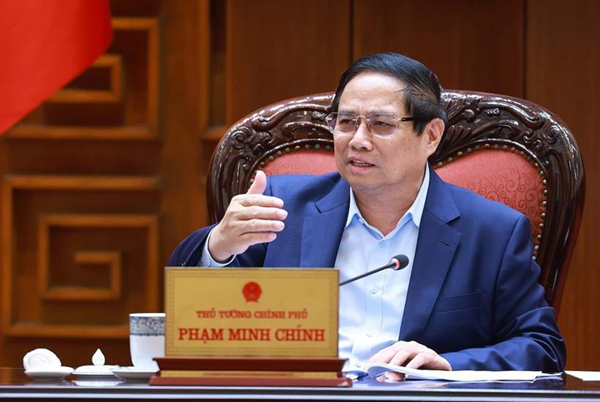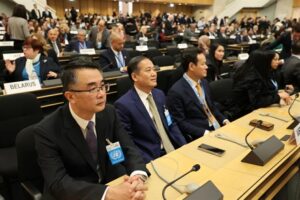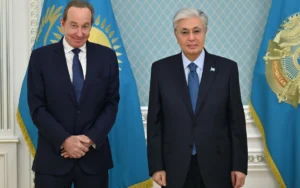Vietnam Vows Resilience, Balanced Cooperation Amid US Tariff Policy Shift

Hanoi, The Gulf Observer: Prime Minister Phạm Minh Chính on Saturday chaired a high-level meeting with standing cabinet members and leaders of ministries, sectors, and localities to strategize Vietnam’s response to the new US tariff policy announced by President Donald Trump earlier this week.
The session followed an earlier emergency meeting on April 3, immediately after the US administration revealed the changes. Since then, the Vietnamese Government has conducted consultations with US businesses and experts, aiming to address challenges, boost the implementation of US-invested projects in Vietnam, and negotiate increased imports of American goods, alongside potential tariff adjustments.
PM Chính affirmed that Vietnam’s recent proactive measures reflect a genuine commitment to fostering balanced, sustainable, and mutually beneficial economic and trade relations with the United States. However, he warned that the new US tariff regime could impact Vietnam’s economic trajectory, urging continued negotiations and diplomacy to reach common ground.
“Vietnam has weathered past crises—from COVID-19 to global economic downturns—by staying calm and resilient. This moment demands similar resolve,” PM Chính stated.
He emphasized that Vietnam–US relations, once marked by enmity, now serve as a model of reconciliation and partnership, with trade and investment forming a cornerstone of cooperation. He highlighted that the two economies are complementary, not competitive, and that the new tariffs could affect Vietnam’s export markets and major partners like China, Japan, South Korea, ASEAN, and even US consumers.
The Prime Minister called for a comprehensive response strategy encompassing short- and long-term solutions, including tariff and non-tariff measures and the use of political, diplomatic, and economic channels. He reiterated Vietnam’s foreign policy stance of independence, multilateralism, and being a reliable global partner, while protecting national interests and pursuing deep integration into the global economy.
PM Chính urged ministries to revitalize Vietnam’s traditional growth drivers—investment, exports, and consumption—while nurturing new growth sectors. He also instructed the implementation of tax and fee relief for businesses affected by the US measures and emphasized stronger promotion of domestic demand, stricter enforcement on product origin and intellectual property rights, and counteraction against trade fraud.
In support of ongoing diplomatic efforts, Deputy PM Hồ Đức Phớc will travel to the US to reinforce agreements made during the recent phone call between Party General Secretary Tô Lâm and President Trump. Meanwhile, Deputy PM and Foreign Minister Bùi Thanh Sơn, who heads the task force responding to the tariff policy, will continue coordinating measures to safeguard Vietnam’s trade interests.
PM Chính concluded by reaffirming Vietnam’s 8% growth target for 2025 and its ambitions for double-digit growth in the years ahead, positioning the current challenge as an opportunity for economic innovation and restructuring.


